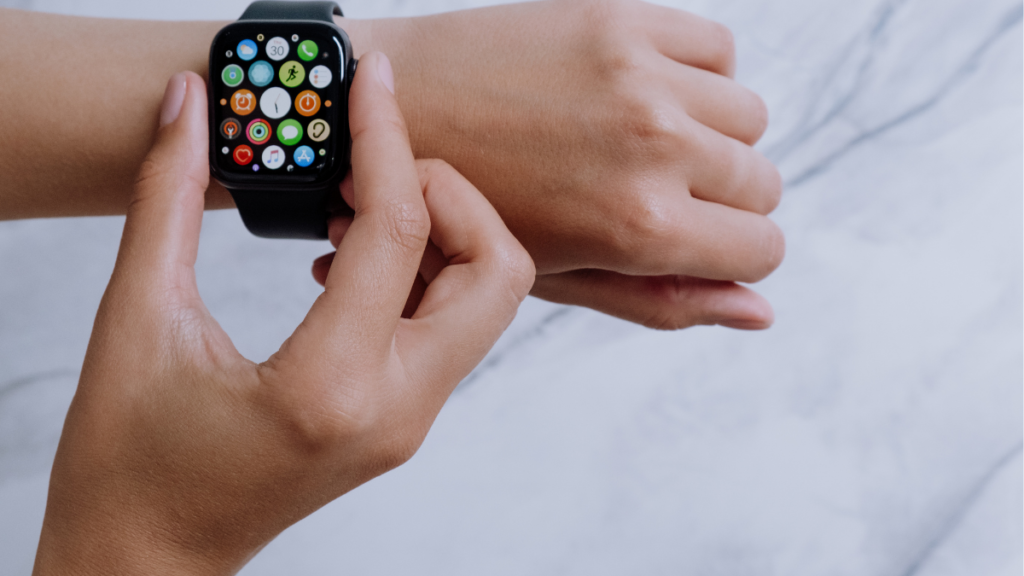A look into how your watch might help your healthcare team with expert insights from Dr. Luis Peña-Hernández
There’s no doubt that the Apple Watch is one of the most desired watches on the market. For most people, it’s because of its sleek design and the fact that it allows you to leave larger devices behind while still staying connected to phone calls, texts, emails, and more. But can the Apple Watch keep track of data that might help your healthcare team? Between the watches’ fitness tracker, heart rate monitor, sleep tracker, blood oxygen, and ECG apps, plus the tons of other health and safety features, it is safe to say that the Apple Watch really was designed to be “the ultimate device for a healthy life”.
What Are the Apple Watch Health Features?
While this is not an Apple Watch endorsement, I do think that this device is in its early stages of becoming the future of health. It has the potential to catch early warning signs, send fitness reminders, and keep track of data in your everyday life that your doctor would otherwise not be able to track. Here are just a few of the current features that may be helpful to you and your healthcare provider:
- Heart rate notifications: Apple Watch checks for unusually high or low heart rates in the background, which could be signs of a serious underlying condition. This could help you and your doctor identify situations that may warrant further evaluation.
- ECG app: With the ECG app, those who experience symptoms such as rapid or skipped heartbeat, or receive the irregular rhythm notification, can capture an ECG and record their symptoms. This real-world data can enable you to make more informed and timely decisions regarding further evaluation and care.
- Sleep tracker app: The Sleep app doesn’t just track your sleep. It works with your iPhone to help you create a schedule and bedtime routine so you can meet your sleep goals. This information can be particularly useful for people who have daytime sleepiness, obesity, or general medical conditions like hypertension. Those individuals are at higher risk of suffering from sleep apnea. The information recorded can be useful to recognize the need to seek medical advice to evaluate your sleep in a more professional manner.
In addition to the features listed above, the watch can keep track of your workouts, oxygen level tracker, ability to connect you to emergency services after a hard fall, and more. These features could be essential to early detection and could ultimately end up saving a life.
Apple Watch is one of many devices capable of tracking your sleep. There are several Android equivalents such as the Samsung Galaxy Watch, Fitbit, and Amazfit. Each one will have pros and cons that will depend on every different user and other devices used to pair and store the data.
In general, it’s always advisable to discuss any potential concerns with your healthcare provider. But information is power, and there’s no better way to achieve better quality sleep than measuring it.
